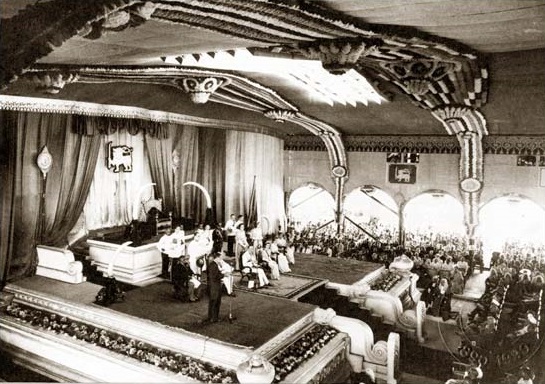
Image: The opening of the first parliament of Ceylon at Independence Square, Colombo, October 1947. Courtesy Wikimedia Commons
Download PDFs: Sri Lanka, in two parts
Part One: The Second World War and the Soulbury Commission, 1939-1945 [239MB]
Part Two: Towards Independence, 1945-1948 [217MB]
Volume Details: Series B Volume 2. First published by The Stationary Office in 1997. Electronic version reproduced with permission of the editor under an Open Government Licence.
Editor Details: KM DE SILVA is Professor Emeritus of History at the University of Ceylon, Peradeniya. He has written extensively on the history of Sri Lanka, including the three volume History of Ceylon (1959, 1960 and 1973), A History of Sri Lanka (1981) and the two volume political biography JR Jayewardene of Sri Lanka (1994, with WH Wriggins).
Selection from Introduction:
“The Ceylon papers provide little by way of dramas or crises. Indeed the processes of transfer of power were singularly free of dramas and crises; they were too smooth to be really credible to critics in Ceylon, especially the marxist left, who argued that Ceylon’s independence was a sham, a piece of make-believe in which Whitehall had willing collaborators in the island’s political establishment (437, 438). The ‘dramas and crises’ came in tragic profusion after independence. But this said, it should not be assumed that the cognate processes were entirely free of anxieties, for some of the issues involved, especially those concerning the future and position of the Indian community in the island, were extraordinarily complex. Commenting in January 1940 on what he had seen of Ceylon affairs over the last two and a half years, Sir Cosmo Parkinson, the permanent under-secretary of state at the CO, observed that he had formed the opinion that ‘of all the Colonies, Ceylon was likely to present the most difficult problem with which the Colonial Office would be dealing’ (9). Even allowing for the fact that Parkinson made this observation two years before the collapse of the empire in the Far East and South-East Asia at the beginning of 1942, the documents in this volume bear ample testimony to the validity of his assessment.” (Part One, p.xxxv)
